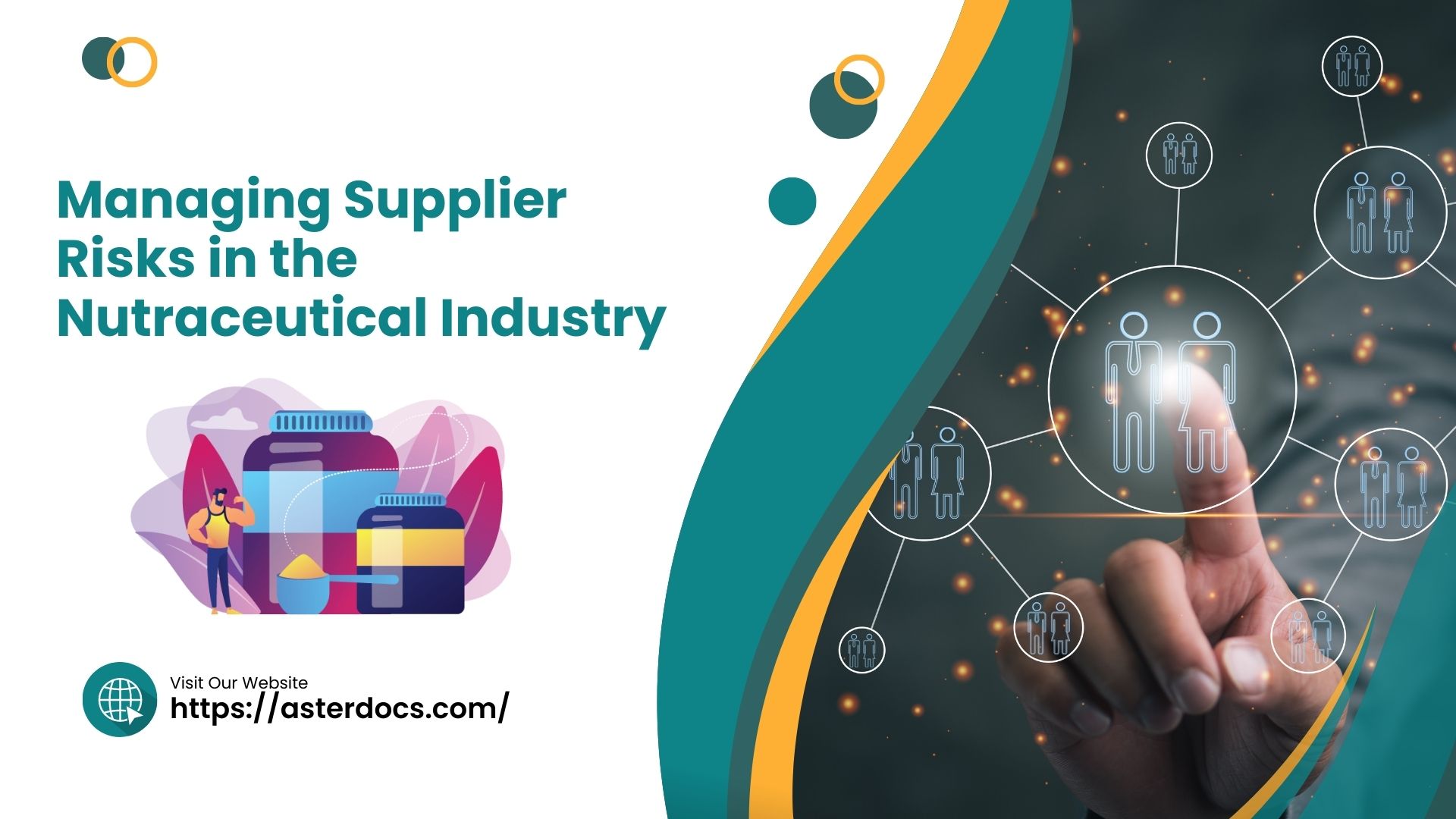As the nutraceutical industry continues to grow, managing supplier risks and ensuring regulatory compliance becomes increasingly important.
Nutraceutical suppliers provide ingredients and raw materials to manufacturers, and non-compliant suppliers can pose significant risks to product quality, regulatory compliance, and brand reputation.
In this blog post, we will explore some tips for efficient supplier qualification and managing risks associated with nutraceutical suppliers.
Understanding the Importance of Supplier Qualification
Supplier qualification is a crucial step in ensuring the quality and safety of nutraceutical products. It involves verifying the credentials, capabilities, and regulatory compliance of potential suppliers.
In the absence of proper supplier qualification, manufacturers may face quality issues, regulatory non-compliance, and damage to their brand reputation. Thus, supplier qualification is critical to maintaining the integrity of the nutraceutical supply chain.
Identifying and Assessing Supplier Risks
Identifying and assessing supplier risks is the first step in managing supplier risks. Suppliers can pose various risks, including quality risks, supply chain risks, and regulatory risks.
Companies should identify and evaluate these risks by assessing supplier capabilities, location, quality control processes, and previous regulatory violations.
Using risk assessment tools and techniques can help companies evaluate supplier risks more efficiently. Risk assessment techniques can include qualitative and quantitative approaches, such as risk matrix, hazard analysis, and failure mode and effects analysis.
By using these tools, companies can prioritize suppliers based on their risk levels and allocate resources accordingly. Effective supplier qualification and risk management are critical to the success of the nutraceutical industry.
By understanding the importance of supplier qualification, identifying and assessing supplier risks, and using risk assessment tools and techniques, companies can efficiently manage supplier risks and ensure regulatory compliance.
Implementing an Efficient Supplier Qualification Process
An efficient supplier qualification process is crucial for managing supplier risks in the nutraceutical industry. Here are some key elements to consider:
Documentation management: A robust document management system is critical for efficient supplier qualification.
It ensures that all necessary documents are collected and stored securely in a centralized location, making it easy to access and retrieve information when needed.
This includes supplier questionnaires, certificates of analysis, manufacturing process details, and more.
Supplier communication: Open communication with suppliers is important to ensure that they understand your requirements and can provide the necessary information promptly.
Clear communication channels help to resolve issues quickly and ensure that suppliers are meeting your standards.
Compliance monitoring: Ongoing monitoring of supplier compliance is critical to avoid any regulatory issues. Ensure that your suppliers are aware of all regulatory requirements and that they comply with the necessary standards.
Technology can play a significant role in streamlining the supplier qualification process and reducing the risk of errors. Here are some best practices for managing documentation:
Document storage: Store all necessary documents in a centralized location to ensure that they are easily accessible when needed.
Retrieval: Use a system that allows for easy retrieval of documents, such as a keyword search or filters.
Version control: Ensure that all versions of documents are properly tracked and that the most recent versions are always used.
Monitoring and Managing Supplier Performance
Once a supplier has been qualified, ongoing monitoring of their performance is essential to ensure that they continue to meet your requirements. Here are some tips for managing supplier performance:
Supplier scorecards: Develop a supplier scorecard to track supplier performance. This should include key performance indicators (KPIs) such as on-time delivery, quality, and compliance with regulatory requirements.
Key Performance Indicators (KPIs): Establish KPIs that are specific, measurable, achievable, relevant, and time-bound. These should align with your overall business objectives.
Non-conformances and deviations: Have a process in place for handling non-conformances and deviations in supplier performance.
This should include corrective actions and preventive measures to ensure that the same issue does not occur again in the future.
How Can a Comprehensive Supplier Qualification Platform Help?
A comprehensive supplier qualification platform can help to manage supplier risks in the nutraceutical industry. Here are some benefits:
Efficient supplier qualification: You can efficiently collect and manage supplier documentation, streamlining the qualification process.
Compliance monitoring: It allows you to monitor supplier compliance with regulatory requirements, reducing the risk of non-compliance.
Supplier performance tracking: It provides tools to track supplier performance, such as supplier scorecards and KPIs.
Document management: You can easily store, retrieve, and manage all supplier documentation in a single platform.
By implementing an efficient supplier qualification process and leveraging technology, you can better manage supplier risks in the nutraceutical industry and ensure that your products are safe and compliant.
Conclusion
Managing supplier risks is crucial for the nutraceutical industry to ensure product quality, safety, and compliance with regulatory requirements.
Implementing an efficient supplier qualification process, identifying and assessing supplier risks, monitoring and managing supplier performance, and leveraging technology can help mitigate supplier risks.
By adopting best practices and using technology solutions, nutraceutical companies can streamline their supplier qualification process, increase transparency in their supply chain, and ultimately deliver safe and high-quality products to their customers.
It’s time to prioritize supplier qualification and manage supplier risks proactively in the nutraceutical industry.



